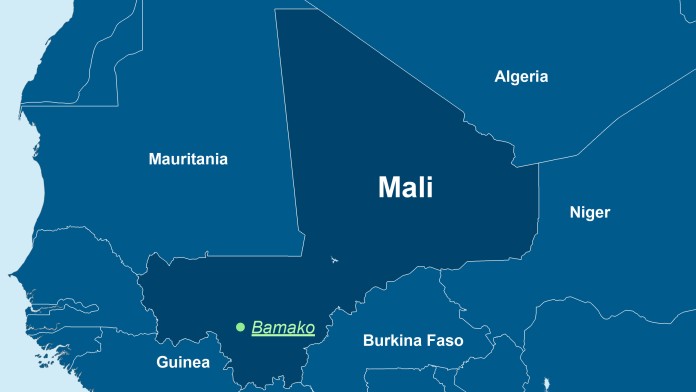
Mali is characterised by large contrasts. While the Niger and Senegal rivers provide fertility in the south, the north of the country borders on the arid Sahel zone. The majority of the western African country’s almost 20 million inhabitants therefore live in the south. There, agriculture offers great potential, and is the most important economic sector, providing work for three-quarters of the population. If agriculture were to be expanded and run more productively, Mali would even have the potential to make a lasting contribution to the food supply throughout the Sahel region.
But the country has been beset by growing conflicts since 2012. Despite a peace agreement, the security situation is critical, especially in the north.
In rural areas, in particular, living conditions are often still precarious: around half the population of Mali lives below the poverty line, and almost one-third are chronically malnourished. Due to the consequences of climate change and strong population growth, smallholder families are barely able to secure their livelihoods through agriculture. In many cases, there is a lack of irrigation to help improve yields and stabilise harvests.
Access to water is also vital for people living in urban areas. Poverty prevails and diseases spread when there is no clean water available. Diarrhoea and malaria are the main reasons for the high child mortality in Mali.
KfW Development Bank is supporting the country on behalf of the German Federal Government with the following core topics:
Decentralisation aims to involve the local population more intensively in the decisions that affect their lives – for Mali, this is right at the top of the development policy agenda. This should help shore up the stability of the country as well as the dialogue between population groups. KfW is supporting this process on behalf of the German Federal Government. It is also co-financing a national fund to meet the financial requirements of the 760 Malian regional bodies in order to build urgently needed markets, schools, health centres and town halls in the municipalities.
In northern Mali, which has been particularly beset by conflict, KfW is supporting projects that will reap rapid rewards. Roads are being repaired, and health centres, wells and markets are being built. Progress should be visible quickly and contribute to stabilisation efforts.
KfW is also committed to making it easier for the many smallholdings to irrigate their fields. KfW is promoting a small-scale irrigation programme on behalf of the German Federal Government and other donors around the world: simple ways to redirect water from the mighty rivers to the fields.
KfW is also financing systems on behalf of the German Federal Government to supply clean drinking water. In the coming years, further wells, pipeline networks, solar-powered pumps and water reservoirs will be built and installed. The building of latrines and plants to treat septic sludge will also be supported.
KfW Office Bamako
Director KfW Office: Loussir Badolo
202 Rue 22 Badalabougou Est
BP 100 Bamako
Mali
+223 20 70 48 00
Fax: +223 20 23 99 55